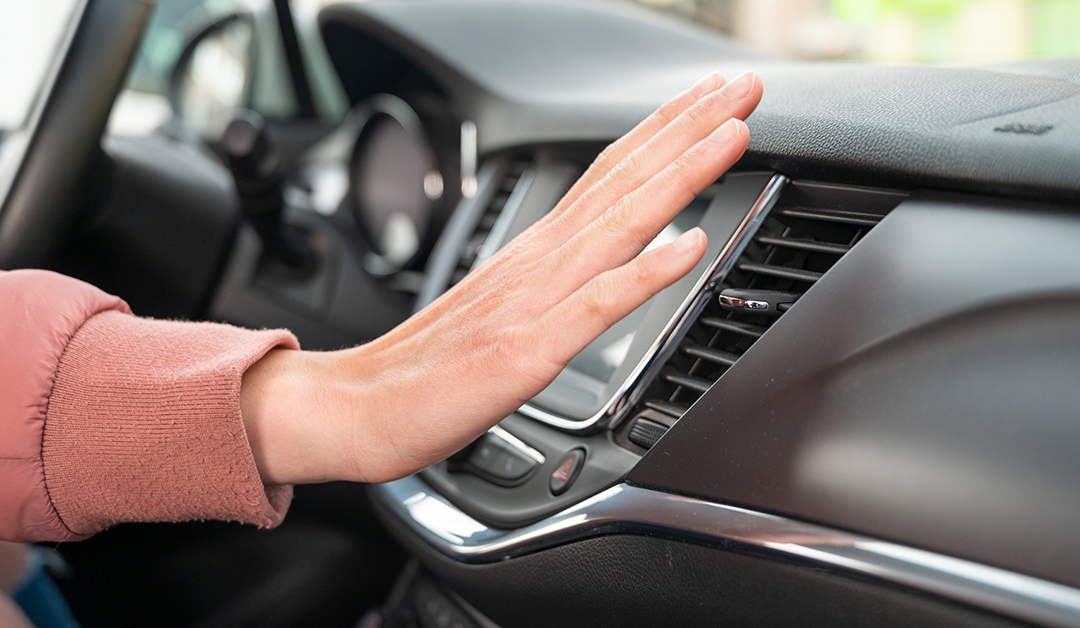Make Sure Your Auto’s AC will Keep Cooling you during this HOT Houston Summer.
The original air conditioners were called “weather conditioners” and were only in use by limousines and luxury car owners back in the ‘30s. Now air conditioners are standard equipment as these systems have served to eliminate humidity and heat trapped inside the passenger compartment. This service is now a standard car feature.
Despite where you live, it seems that the summers in the United States are getting hotter and hotter – almost unbearable! This makes your car’s air conditioner one of those things you can’t live without. And if you wait until your AC breaks down, it’s often more expensive to repair it than it would have been to spend a little time maintaining and caring for it.
When you’re on your way to work or on a family vacation, the last thing you need is for your car’s air conditioner to break down, leaving you in a virtual 120-degree sauna. Unfortunately, unless you are an auto mechanic or an HVAC tech, you haven’t the foggiest idea what to do and will probably end up getting charged an exorbitant amount of money by some unscrupulous auto shop owner to fix it. Frankly, air conditioner repair is both complicated and dangerous, so it’s best left to professionals anyway.
So, what should you do? Before it’s too late, consider checking for these few signs of a properly working a/c system and save yourself some time and money.
- Listen to your A/C
Turn on your air conditioner and listen to it. Is it making any strange noises? It shouldn’t be loud or clicking or banging. If you hear a lot of noise, chances are the a/c is malfunctioning internally.
- Does your A/C smell odd?
You might think that your a/c smells a little strange normally, however, it shouldn’t smell musty or have some other unpleasant odor. Circulating air should smell neutral. What you don’t want is the smell of dust or even mold or mildew that might be built up in the system. Those smells are not normal and might even trigger allergies, asthma or worse. “What you’re probably smelling is the condensation that comes from the evaporator inside your heating and cooling system,” says Jake Fisher, Consumer Reports’ senior director of auto testing. “Basically, water collects in that area and, if it sits long enough, creates the musty smell.”
Most of the water is meant to exit your car via the evaporator drain under the bottom of the vehicle. You’ve probably seen a small puddle of water under the bottom of your car on a hot, humid day, says Fisher. But sometimes, some of it collects in the evaporator, and if it sits in there for a while, bacteria and mold are going to form and you’re going to smell it in the cabin of the car. Fortunately, it’s actually a pretty easy fix.
First, if you have a cabin air filter, change it. You can buy filters at the auto parts store. It is suggested that you change your air filter every 12,000 miles due to dust and debris that can get in there and clog up your system.
While you are at the auto parts store, buy a spray a/c disinfectant (or you can also use Lysol) and spray it into the plenum. The plenum is a box that connects to your HVAC system, and the intake can be found at the base of your windshield where your wipers are located. You will see vents there, and that’s the plenum. That’s where the air comes from, which goes into your heating and cooling system.
Spray the cleaner liberally into both sides of the plenum intake vent, and the fans will pull it into the system, where it will kill the bacteria and help get rid of that musty odor. You’ll want to keep your windows open to help air out the car.
- Maintain your vents
To help maintain your vents in the summer, turn off the a/c and allow the fans to run for a few minutes before you turn off the car. This will help clear out moisture that can form in the a/c vents.
- Look inside the sight glass
One of the most important parts of your car’s air conditioner is the refrigerant. Your refrigerant level goes down by 15% EACH YEAR! So, if you’ve had your car for a few years, it most likely needs some coolant. You also need to make sure that the liquid refrigerant stays dry. If it gets wet, it will react with water to create corrosive hydrochloric acid, which is very dangerous for your engine. Check your refrigerant by looking into the sight glass under the hood. You’ll find it by following the hose connected to your condenser. If you look into the sight glass, you should see clear liquid. If, on the other hand, it appears milky or bubbly, you need to get it replaced by a mechanic. Also, make sure your system doesn’t have any leaks. Rubber seals and hoses can lose elasticity and crack, causing the refrigerant to escape and moisture to get inside your air conditioning system.
Air conditioner coolant can be toxic, so you shouldn’t try to replace it yourself, especially if you have an older car that’s still using Freon. On the other hand, if you’re using a newer system with R-134a, you’ll need to combine it with the correct amount of oil for the system to run smoothly. Getting the right balance between refrigerant and oil is tricky and needs the help of a professional. If the balance is not correct, the compressor won’t run properly. Without enough oil, the compressor can break down, needing to be replaced, and will end up costing you a great deal of money. Avoid these types of expenses by getting your car’s air conditioning system serviced each year by a professional to make sure none of these issues occur.
Other things that can happen to your car’s AC include a broken condenser, a cracked or damaged below, a defective clutch, inactive presser switches, or idle values, all of which need to be replaced or installed by someone that knows what they’re doing.
- What is the temperature inside your car?
If your a/c is functioning correctly, it should be able to keep the inside of your car 50 degrees below the outdoor air temperature. This may seem like a lot, depending on where you live, but at least it is a good method of determining if your a/c is working properly. If your car doesn’t show the outside temperature, bring a thermometer to your car and check the air temp. Then, run the a/c for a while and see how quickly the temperature goes down. If it doesn’t go down rather quickly, you most likely need some maintenance.
- Heat Horrors
Take your car for a 30-minute drive. If your engine starts to overheat, it may be caused by a malfunctioning thermostat, coolant leak, or some other problem caused by a malfunctioning a/c system.
- Check Your Cooling System
The best rule of thumb is to check your car’s air-conditioning every 12,000 miles (or 12 months) and more often if you live in a very hot environment. Consider calling a company that has some established history, a website, social media pages, and a blog that shows that the owners care and check Google Reviews or the Better Business Bureau.
Look for a company with a long-established reputation and good reviews. We all know that when you see positive reviews about a company, it helps to build your confidence. If you’re in Houston consider calling Alpha and Omega Tire & Auto, located in the Greens area of Houston, with over 15 years of experience for all your automotive needs. For assistance, please call 346-413-0967 or stop by for an estimate at 10513 Airline Drive Houston, TX 77037.

